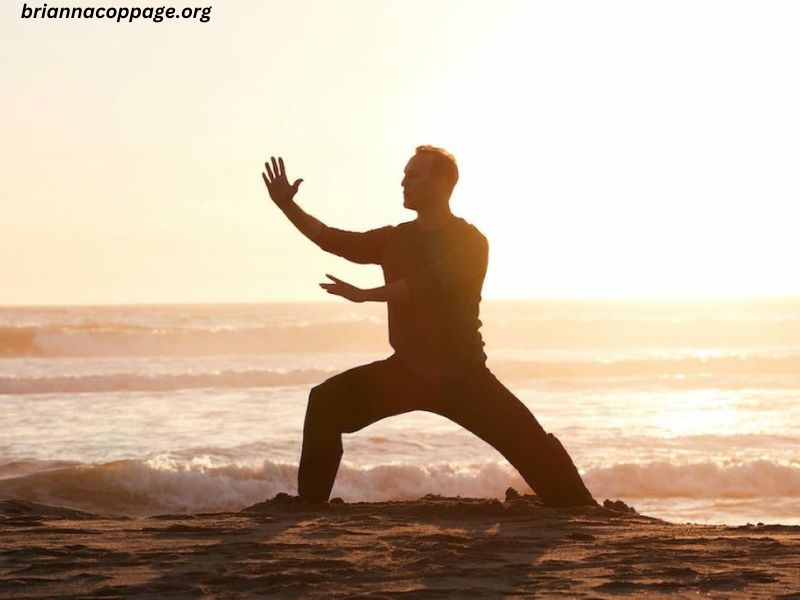Standing Chi Gung (or Qigong) is a practice with a rich history, an art of cultivating energy (Qi) while standing still. It’s an ancient Chinese tradition grounded in mindfulness, meditation, and energy work. For many practitioners, one fascinating experience often arises during practice—a tingling sensation in the body. But what does that tingling mean?
If you’re a martial artist seeking to deepen your mind-body connection, a wellness enthusiast exploring holistic practices, or genuinely curious about the subtler sensations of energy work, you’re in the right place. This blog unpacks what tingling means in Standing Chi Gung, its significance, and how to interpret it in the context of your practice.
Understanding Standing Chi Gung
Before we explore tingling, let’s revisit the essence of Standing Chi Gung.
Chi Gung translates to “energy work” or “energy cultivation.” Unlike dynamic forms of exercise, Standing Chi Gung focuses on stillness and alignment. Practitioners hold positions (like Wuji or the tree pose) that appear simple but have profound effects on the body and mind.
The goal? To balance the flow of Qi, or life energy, within your body. This ancient system forms the foundation of practices like Tai Chi and martial arts. But it’s not reserved exclusively for fighters; it’s a practice that benefits anyone seeking balance, relaxation, and energy renewal.
Key Benefits of Standing Chi Gung
- Improved Energy Flow – It promotes the smooth circulation of Qi through the body’s energy meridians.
- Strengthened Posture & Stability – Standing poses build core stability and strengthen your lower body over time.
- Mental Clarity – The meditative aspect calms the mind and sharpens focus.
- Deep Relaxation – Standing still releases tension, often revealing energies or sensations below the surface.
One such revelation? Tingling. Now, let’s explore its meaning.
What Does Tingling in Standing Chi Gung Indicate?
Experienced practitioners often report a tingling sensation during practice. Here’s what it might mean for your body, energy, and practice.
1. Qi Activation
Tingling is most commonly attributed to the activation or circulation of Qi. As you stand in alignment and focus on your breath, blocked or stagnant energy begins to flow through the meridians of your body. This “awakening” of energy can manifest as a tingling feeling in areas like your hands, feet, or spine.
Think of it as rivers of vitality breaking through barriers. It’s your body’s subtle way of signaling that energy is moving where it’s needed.
2. Improved Blood Circulation
From a scientific perspective, Chi Gung postures encourage better blood flow, particularly to areas that may have been constricted or tense. Tingling may represent increased vascular activity as stagnant blood starts circulating more effectively.
For example, if your palms start tingling while holding the “tree pose,” your hands may be experiencing improved circulation as a result of relaxed shoulders and arms.
3. Heightened Sensitivity
Standing still for an extended period creates a deeper connection with your body. You may become more attuned to sensations you usually overlook—subtle vibrations, temperature changes, or tingling.
This heightened awareness is one of Chi Gung’s great gifts. It allows you to recognize energetic and physiological signals, deepening your understanding of your body and its needs.
4. Qi Rebalancing or Releasing Blockages
Traditional Chinese Medicine (TCM) often links tingling to the release of stagnant energy or blockages in your meridians. If you feel tingling in certain areas of the body, it might indicate that stuck energy is starting to move again—think of bursting open a dam to restore the river’s flow.
For example, tingling down the arms while holding the Wuji stance could signify rebalancing within the Heart Meridian.
5. Relaxation of Tension Points
When tension in your muscles begins to ease, you might feel tingles as nerves “wake up.” This is particularly common in areas like the shoulders, neck, or back. It’s as though the body is signaling, “Ah, finally some relief!”
Is Tingling a Positive Sign?
Absolutely! Tingling during Standing Chi Gung is usually a sign of progress. It demonstrates that your practice is creating meaningful shifts within your body and mind. However, here are some things to keep in mind as you interpret the sensation.
- Consistency Over Intensity – If the tingling feels mild, that’s okay. It’s the regular practice—not the strength of the sensation—that matters in Chi Gung.
- Natural Flow – Ensure you’re not forcing breath or posture. Tingling comes from balance, not exertion.
- Pain vs. Tingling – If you experience discomfort or pain, stop and realign your pose. Tingling should feel light and pleasant, never sharp or painful.
How to Deepen Your Chi Gung Practice
Want to refine your practice and foster a deeper connection to these sensations? Follow these steps to enhance your experience.
1. Focus on Breath work
Qi is closely tied to your breath. By focusing on long, slow inhales and relaxed exhales, you’ll further activate and balance energy flow.
2. Check Your Posture
Alignment is key. Make sure the spine is neutral, the knees are slightly bent, and the shoulders are relaxed. Even small adjustments can amplify your energy flow.
3. Ground Yourself
Visualize roots extending from your feet deep into the earth. This sense of grounding helps stabilize both your physical stance and energy.
4. Practice Patience
Subtle energies take time to build up. Be consistent in your practice—even just 10–15 minutes a day—and tingling sensations or other energetic signals may become more pronounced.
5. Join a Community
Practicing Chi Gung with like-minded individuals adds an enriching layer to your experience. Many practitioners enjoy sharing their stories and insights, deepening mutual understanding of this ancient art.
Balance Energy, Enrich Your Life
The tingling you feel while practicing Standing Chi Gung is more than just a sensation—it’s a conversation between your body and your energy. It’s a sign that you’re building a deeper connection with yourself and opening doors to greater vitality, clarity, and wellness.
If you’re just beginning your Chi Gung journey, remember to approach it with curiosity and patience. And if you’re ready to explore beyond tingling and discover what’s possible with consistent practice, consider joining our community of dedicated Chi Gung enthusiasts.






